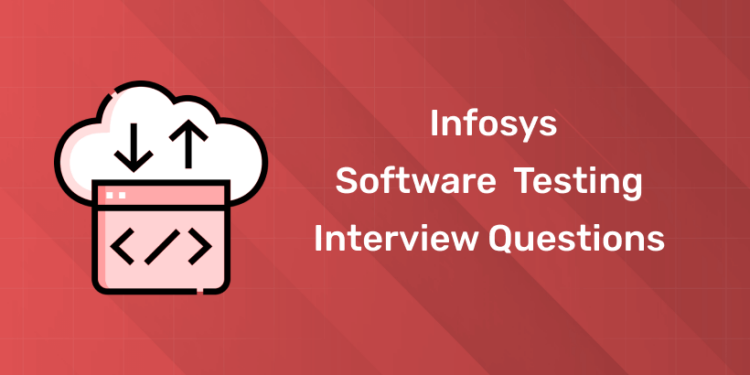Table of Contents
Are you preparing for a software testing interview at Infosys? You’ve come to the right place. In this comprehensive guide, we’ll dive deep into the world of Infosys software testing interview questions, providing you with valuable insights and preparation tips to help you succeed.
Landing a job as a software tester at Infosys can be a significant milestone in your career. Infosys, a global leader in technology services and consulting, offers various opportunities for professional growth and development. To help you ace your Infosys software testing interview, we have compiled a comprehensive guide covering everything from company overview and preparation tips to the most common interview questions and answers.
Overview of Infosys
Infosys is a global technology services and consulting firm that provides end-to-end business solutions, enabling clients to enhance their business performance. Founded in 1981 and headquartered in Bangalore, India, Infosys has grown to become a leader in the IT services industry. The company operates in over 50 countries and offers services in digital transformation, cloud computing, artificial intelligence, and more. With 250,000+ employees, Infosys is at the forefront of digital transformation helping businesses to navigate the modern technology landscape.
Why to Join Infosys as Software Tester?
Joining Infosys as a software tester can be a good decision for many reasons:
- Global Exposure: Work on multiple projects for international clients, get experience across industries and technologies.
- Career Growth: Infosys has clear career paths and many opportunities for growth.
- Learning and Development: Get access to latest training programs and certifications to keep your skills updated.
- Innovation Culture: Be a part of a company that encourages innovation and out of the box thinking.
- Competitive Pay: Get attractive salary and benefits as per your skills and experience.
- Work-Life Balance: Infosys is known for promoting work-life balance among its employees.
- Stability: Join a established company with good market presence and financial stability.
Infosys Software Testing Interview Preparation Tips
1: What is software testing?
To crack Infosys software testing interview follow these tips:
- Review Core Testing Concepts: Go through fundamental testing principles, methodologies and best practices.
- Study Infosys Services and Culture: Get familiar with Infosys offerings and company values to show your interest and fit.
- Practice Coding: Although not mandatory, basic coding skills are an added advantage.
- Prepare for Behavioral Questions: Be ready to discuss your experiences, challenges faced and problem solving approaches.
- Industry Trends: Get updated on software testing and quality assurance.
- Mock Interviews: Do mock interviews with friends or mentors to boost your confidence and communication skills.
- Resume: Be ready to discuss the projects or experiences mentioned in your resume.
Master Testing Skills with Industry Experts
Become a Test Engineer: Learn Core Skills from Industry-Leading Mentors and Land High-Paying Testing Jobs!
Explore ProgramInfosys Software Testing Interview Questions
Now let’s get into some of the most common Infosys software testing interview questions. We will provide answers to help you understand in detail.
1. What is software testing and why is it important?
Answer: Software testing is the process of testing a software application to find defects, errors or gaps in functionality. It’s important because it ensures quality, reliability and performance of software products before they reach end users. Testing helps in:
- Finding and fixing bugs early in development cycle
- Ensuring software meets requirements
- Increasing user satisfaction and trust
- Reducing maintenance costs in long run
- Improving overall product quality and reliability
2. What is the difference between verification and validation in software testing.
Answer: Verification and validation are two different aspects of software testing:
Verification:
- Reviews and checks documents, design, code and program
- Asks the question: “Are we building the right product?”
- Done without executing the code
- Includes activities like reviews, walkthroughs and inspections
Validation:
- Involves actual testing of the product by executing the code
- Asks the question: “Are we building the right product?”
- Ensures the product meets user’s needs and requirements
- Includes functional and non-functional testing
3.What are the different levels of software testing?
Answer: The main levels of software testing are:
- Unit Testing: Testing individual components or modules of the software
- Integration Testing: Testing the interaction between integrated units or modules
- System Testing: Testing the complete, integrated system to verify it meets specified requirements
- Acceptance Testing: Validating the system against business requirements and user needs
Also there are other levels: 5. Component Testing: Testing individual parts of the software 6. Smoke Testing: Quick tests to check basic functionality after a build 7. Sanity Testing: Focused testing to verify specific functionality after fixes or changes
4. What is software testing life cycle (STLC).
Answer: Software Testing Life Cycle (STLC) consists of the following phases:
- Requirement Analysis: Understanding and analyzing the requirements
- Test Planning: Defining the test strategy, effort estimation and resource planning
- Test Case Development: Creating test cases and test scripts
- Test Environment Setup: Setting up the testing environment with necessary hardware and software
- Test Execution: Running the test cases and reporting defects
- Test Cycle Closure: Evaluating cycle completion criteria and preparing test closure reports
This ensures a structured approach to testing throughout the software development process.
5. What is the difference between black box testing and white box testing?
Answer:
Black Box Testing:
- Focuses on functionality without knowing the internal code structure
- Tests are based on requirements and specifications
- Suitable for both functional and non-functional testing
- Done by testers who don’t need programming knowledge
White Box Testing:
- Examines the internal logic and structure of the code
- Requires knowledge of the internal workings of the application
- Helps in optimizing the code and improving its coverage
- Done by developers or testers with programming skills
6. What is test case prioritization?
Answer: Test case prioritization is the process of ordering test cases to get the most out of testing within time and resource constraints. It involves:
- Identifying key functionality and high risk areas
- Frequency of use and impact of features
- Complexity of test cases
- Likelihood of defects in specific areas
Prioritization helps in:
- Finding defects early
- Improve test efficiency and effectiveness
- Resource optimization
- Get feedback to development teams sooner
7. What is regression testing and when is it done?
Answer: Regression testing is a type of software testing that verifies previously developed and tested software still works after changes. It’s done:
- After a bug is fixed
- When new features are added
- During software updates or patches
- When environment or config changes
The goal is to make sure new changes didn’t introduce new bugs or affect existing functionality. Regression testing ensures the software remains stable and reliable throughout its life cycle.
8. What’s the difference between functional and non functional testing?
Answer: Functional testing checks that each function of the software works as per specifications, focuses on what the system does. Non functional testing checks aspects not related to specific behaviors, like performance, security, usability, reliability, focuses on how well the system performs.
9. What is a test plan and what are its components?
Answer: A test plan is a document that describes the scope, approach, resources and schedule of testing activities. Components are test objectives, strategy, environment requirements, deliverables, features to be tested, testing tasks, schedule, risks and approvals.
10. What is boundary value analysis in software testing?
Answer: Boundary value analysis is a test case design technique that focuses on testing at the boundaries of input domains. It tests values at the edges of equivalence partitions, typically includes minimum, maximum and just inside/outside boundary values to identify errors in boundary conditions that are often missed.
11. What is the difference between severity and priority in bug reporting?
Answer: Severity indicates the impact of the bug on system functionality, categorized as critical, major, moderate or minor. Priority indicates the order in which the bug should be fixed, usually categorized as high, medium or low based on business impact and urgency.
12. What is equivalence partitioning in software testing?
Answer: Equivalence partitioning divides the input domain into classes of data that are expected to behave similarly. It reduces the number of test cases while maintaining good coverage by testing one value from each partition and assuming it represents the entire class.
13. What is exploratory testing and how is it different from scripted testing?
Answer: Exploratory testing gives the tester the freedom to design and execute tests concurrently, relies on their knowledge and intuition. Unlike scripted testing which follows pre defined test cases, exploratory testing is more flexible and adaptive and often uncovers unexpected issues more easily.
14. What is test automation and its benefits.
Answer: Test automation is using software tools to control test execution and compare actual results with expected results. Benefits are increased test coverage, faster execution of repetitive tests, reduced human error, ability to run tests unattended, reusability of test scripts and cost effective for long term projects.
Learn Software Testing from QA Experts! Get Free Demo Classes Here!
15. What is a test harness and how is it used in software testing?
Answer: A test harness is a collection of software and test data to test a program unit under different conditions. It includes test execution engine, script repository, data source and result comparator, automates the testing process and provides consistent and repeatable test executions.
16. What is the difference between Alpha Testing and Beta Testing?
Answer: Alpha testing is done by developers and internal testers in a controlled environment. Beta testing is done by real users in real world environment to identify issues before final release.
17. How do you measure Testing Effectiveness?
Answer: Testing effectiveness is measured by metrics like defect density, test coverage, defect detection rate and test execution time. These metrics help to evaluate the testing process and identify areas of improvement.
18. What is usability testing and why is it important?
Answer: Usability testing is testing a product on users. It’s about measuring how well a product works. Key things include:
- Watching users try to do tasks
- Identifying design flaws that cause user errors or confusion
- Collecting qualitative and quantitative data on user performance
Importance:
- Increases user satisfaction and adoption
- Saves development costs by finding issues early
- Improves overall user experience
- Makes interfaces more intuitive and efficient
- Gives insights for marketing and product positioning
Usability testing makes sure the software not only works but is also user friendly and meets the needs of its audience.
19. What is test coverage and why is it important in software testing?
Answer: Test coverage is a metric that measures the amount of testing done by a set of tests. It’s usually expressed as a percentage and can refer to:
- Code coverage: Percentage of code tested
- Feature coverage: Percentage of features tested
- Requirement coverage: Percentage of requirements tested
Importance:
- Finds untested parts of the application
- Gives insight into the quality and extent of testing
- Tells when to stop testing
- Guides test case development to improve overall test effectiveness
- Helps in determining risk of untested areas
While high test coverage is good, 100% coverage doesn’t mean there are no defects. Quality of tests is as important as quantity.
20. What is load testing and how is it different from stress testing?
Answer:
Load Testing:
- Tests system under expected load conditions
- Measures response times, throughput and resource usage
- Finds performance bottlenecks under normal peak conditions
- Simulates a realistic load scenario
Stress Testing:
- Tests system beyond normal or peak load conditions
- Finds the breaking point of the system
- Finds how the system fails and recovers from extreme conditions
- Pushes the system to and beyond its limits
While both are forms of performance testing, load testing is about expected scenarios and stress testing is about extreme conditions to ensure system stability and graceful degradation under pressure.
Learn Software Testing from QA Experts! Get Free Demo Classes Here!
Entri’s Software Testing Course
Looking to enhance your software testing skills and career? Enroll in Entri’s Software Testing Course. This course covers all aspects of software testing, manual and automation testing, test management tools and real time projects.
Conclusion
To prepare for Infosys software testing interview you need to have good understanding of testing concepts, practical skills and knowledge of Infosys methodologies. Follow the preparation tips and practice with the interview questions provided and you will be ready for the interview. Remember continuous learning and practice is the key to master software testing. Good luck!
Are you aspiring for a booming career in IT? Then check out |
|||
Full Stack Developer Course |
Python Programming Course |
Data Science and Machine Learning Course |
Software Testing Course |
Frequently Asked Questions
What types of questions are typically asked in Infosys software testing interviews?
Infosys software testing interviews often include questions about testing concepts, methodologies, tools, and real-world scenarios. Candidates can expect a mix of technical and behavioral questions.
How can I prepare for an Infosys software testing interview?
Prepare by reviewing core testing concepts, studying Infosys’ services, practicing coding skills, preparing for behavioral questions, and staying updated on industry trends. Conducting mock interviews can also be helpful.
What skills are important for a software tester at Infosys?
Important skills include knowledge of testing methodologies, analytical thinking, attention to detail, communication skills, familiarity with testing tools, and basic programming knowledge.
Does Infosys provide training for new software testers?
Yes, Infosys is known for providing comprehensive training programs to new employees, including those in software testing roles.
What career growth opportunities are available for software testers at Infosys?
Infosys offers clear career paths for software testers, with opportunities to advance to senior testing roles, move into test management, or transition to related fields like quality assurance or business analysis.
Why is Infosys a good choice for software testers?
Infosys offers global exposure, innovative projects, career growth opportunities, and comprehensive benefits, making it an excellent choice for software testers.













